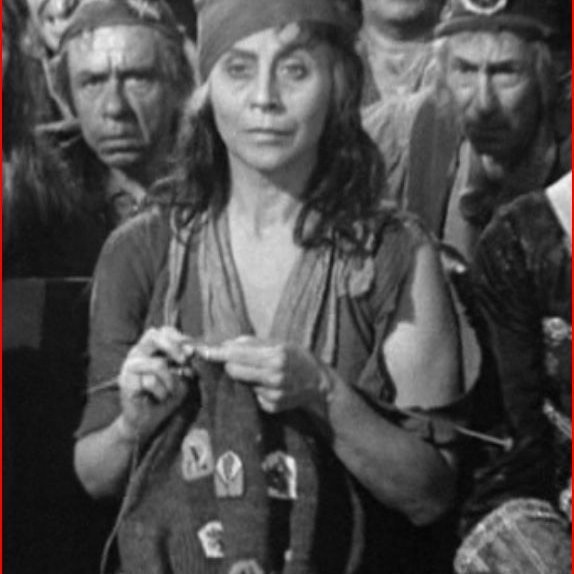Tags
Benjamin Britten, Deborah Warner, French politics, French Revolution, Madam DeFarge, Melody S. Owens, mob rule, opera, Palais Garnier, Peter Grimes, revolution, Travel, traveler's views
On a recent visit to France we experienced, in the course of two weeks, three general strikes and one slow-down, all in protest against the French government’s move to raise the retirement age from 62 to 64 years of age. The result was chaos in the public transport sector, cancelled flights, and a few shops and venues closed in sympathy with the strikers. There were demonstrations, confined only to certain neighborhoods. Despite these actions, on strike days in the streets of Paris and other cities we visited, most of the shops, restaurants and businesses were open, most people were working, and while automobile traffic was terrible, people on the street seemed resigned and simply shrugged or groaned when asked about the situation.
French politics is complex, strident and as divided as anything you will find in the U.S. Still, I wonder if the workers in France, so violently opposed to this change, are aware that in most of the world, retirement with a guaranteed pension for everyone at age 64 would be considered a gift. I think they do know, but there is a sense of exceptionalism in France, stemming from their history and cultural hegemony, one that tells them that they deserve a little more. In the recent charming film Mrs. Harris Goes to Paris, a wise transient explains to the visiting Englishwoman, “in France, the worker is king.”
It was an interesting juxtaposition, then, that on one of those strike days the opera we saw at the Palais Garnier was Benjamin Britten’s Peter Grimes, a dark tale of an outcast man, perhaps criminal or perhaps just a misfit, who is abused and rejected by his church-going neighbors in a small English fishing village. Grimes’ violent behavior and reclusive rage lead to rumors and suspicions, and he ultimately becomes a victim of mob violence. In Deborah Warner’s stunning, stark production, the crowd scenes were terrifying, and Grimes’ guilt or innocence became irrelevant, his condemnation inexorable. The mob decided he was guilty, his life was made unbearable, and he sails away to isolation and death, exiled from the company of other people, alone and discarded.
One thinks of the descriptions in history and literature of the revolution in France, and then the Reign of Terror, the brutal swing of the pendulum that favored first indifferent kings and privileged aristocrats, and the starvation, war and oppression they inflicted upon the less entitled, and then the mindless savagery and revenge wrought by the impoverished masses who were their victims. Extremes of poverty and wealth, privilege and corruption often provoke the most violent overthrows, but in France today, as with many European countries, there exists an enviable safety net. French citizens, regardless of education, class, employment or income, enjoy universal medical care, social support, free education and retirement benefits. French people with whom we spoke during our visit believe that the law to change the retirement age is inevitable, and that a minority mob is now holding the country hostage to express their displeasure, because they can.
When a minority is oppressed, demonstrations and strikes are a potent tool to express opposition and negotiate change, and the French do enjoy their demonstrations. There is no question that such public expressions of freedom of speech are treasured legacies of those bloody revolutions. But should the worker be “king” any more than the king should be “king?” One might say that the freedom to demonstrate arose from the ashes of that revolution, but the irony is that today the societies that seem to have achieved the most equilibrium in social benefits and human rights are Scandinavian monarchies. They had no revolutions. Are they perfect? No. But they have found ways to negotiate between hereditary privilege and class oppression, taking care of their citizens while avoiding mass disruption and societal rage. Mob rule, whether in Paris or in Washington, does not garner fairness, right wrongs or achieve balance. Should people in opposition voice their opinions? Yes. But crossing over into mass bullying gains nothing, and is self righteous, unknowing and blind.
©Melody S. Owens, Poets Sinews, 2023. Reuse with permission.
Rosalie Crutchley as Madame Defarge, 1958

